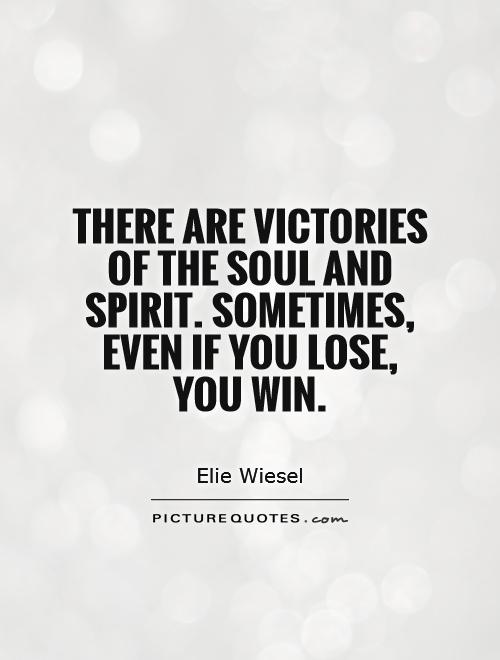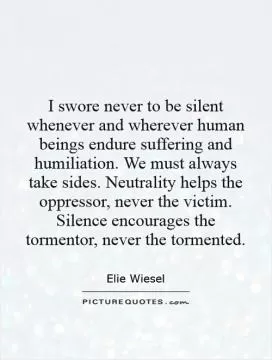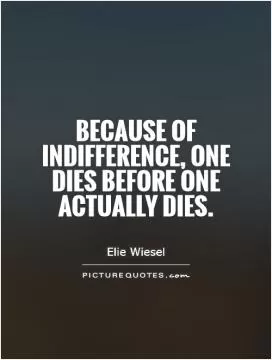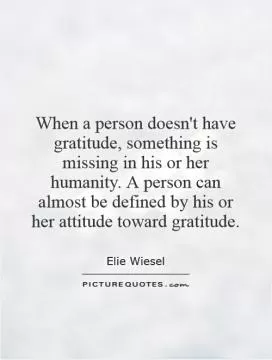There are victories of the soul and spirit. Sometimes, even if you lose, you win

There are victories of the soul and spirit. Sometimes, even if you lose, you win
Elie Wiesel, a Holocaust survivor and Nobel laureate, is a prime example of someone who experienced victories of the soul and spirit despite enduring unimaginable suffering and loss. Wiesel's memoir, "Night," chronicles his harrowing experiences in Nazi concentration camps during World War II, where he witnessed the depths of human cruelty and the struggle for survival in the face of overwhelming adversity.Throughout his ordeal, Wiesel clung to his faith and inner strength, finding moments of solace and connection with others in the most unlikely of places. Despite the horrors he witnessed and the loss of his family, Wiesel never lost his humanity or his will to live. His ability to find moments of beauty and connection in the midst of such darkness is a testament to the resilience of the human spirit.
In the context of Wiesel's life, the idea that "even if you lose, you win" takes on a profound meaning. While Wiesel may have lost his family, his home, and his innocence during the Holocaust, he emerged from the experience with a renewed sense of purpose and a commitment to bearing witness to the atrocities he had witnessed. Through his writing and activism, Wiesel became a voice for the voiceless, speaking out against injustice and advocating for peace and reconciliation.
Wiesel's victories of the soul and spirit were not measured in material terms, but in the strength of his convictions and the impact of his words and actions. Despite the trauma he endured, Wiesel never lost his capacity for empathy and compassion, using his own suffering as a catalyst for change in the world.












 Friendship Quotes
Friendship Quotes Love Quotes
Love Quotes Life Quotes
Life Quotes Funny Quotes
Funny Quotes Motivational Quotes
Motivational Quotes Inspirational Quotes
Inspirational Quotes